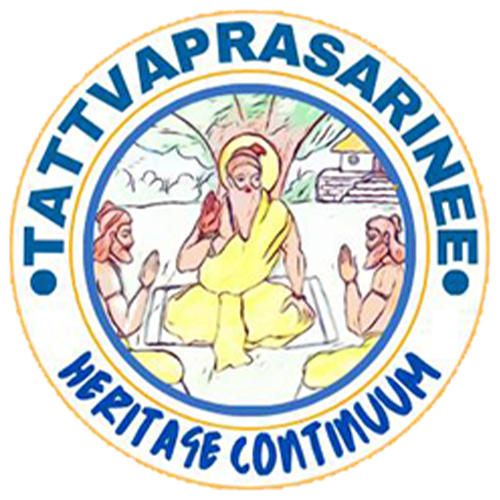
Ananta-guṇa-sampannaṁ, ananta-bhajana-priyam,
Ananta-rūpiṇaṁ vande, guruṁ ānanda-rūpiṇam!
I bow to the Guru, who is filled with infinite qualities, who is beloved to those who worship Him endlessly, and who manifests in infinite forms as bliss itself.
Introduction to Rudra Prashna (Namakam)
The Rudra Prashna, commonly known as Namakam, is one of the most profound and essential hymns in the entire Vedic tradition. It serves as the heart of several Vedic rituals and is recited with great reverence in both Agnichayana (fire altar consecration) and Japa-Homa-Archana (chanting, fire offerings, and ritual worship).
The Etymology and Meaning of ‘Rudra’
The name Rudra has been interpreted in multiple ways, each revealing different aspects of the deity. The following are some of the most significant interpretations derived from Vedic scriptures:
1. Rudra – The One Who Causes All to Weep at the Time of Dissolution
“Rodhayati sarvaṁ anta-kāle iti Rudraḥ” (Rudeḥ niluk ca)
• At the time of cosmic dissolution (Pralaya), He brings everything to an end, causing universal mourning. This interpretation portrays Rudra as the force responsible for the destruction phase of creation.
2. Rudra – The One Who Melts Sins Through the Sound of Om
“Rutau nādānte dravati drāvayatīti vā Rudraḥ”
• In Pranava Upasana (meditation on Om), the sound AUM represents the cosmic cycle—Virāt (A), Hiranyagarbha (U), and Avyākṛta (M). Rudra guides this process, dissolving the illusion of individuality and merging it into the absolute.
3. Rudra – The One Who Guides Beings Towards Dharma Through the Vedas
“Rutyā vega-rūpayā vācā dharmādīn avalokayati prāpāyatīti vā Rudraḥ”
• Rudra, through the sacred speech of the Vedas, helps beings discern Dharma (righteousness) and attain liberation.
4. Rudra – The One Who Bestows Knowledge Through Vedic Speech
“Rut laukikī vāk; tayā vācyam arthaṁ drāvayatīti Rudraḥ”
• Rudra enables the transmission of meaning through speech, making the divine wisdom accessible to all.
5. Rudra – The One Who Reveals the Supreme Truth Through Omkara
“Rutyā praṇava-rūpayā svātmānaṁ prāpāyatīti”
• Through the vibrations of Pranava (Om), Rudra leads seekers towards self-realization and the Supreme Reality.
6. Rudra – The One Who Permeates and Moves Within All Beings
“Rautīti Rudraḥ, rorūyamāṇaḥ dravati praviśati martyānīti Rudraḥ”
• Just as the cosmic sound (Pranava) pervades all existence, Rudra enters and energizes all beings.
7. Rudra – The One Who Radiates Supreme Power and Brilliance
“Ruk tejaḥ bhūmni nitya-yoge vā r-pratyayaḥ, varṇa vyāvṛttyā Rudraḥ, tejasvīti arthaḥ”
• The word Ruk symbolizes intense radiance (Tejas), and Rudra represents one who embodies supreme luminosity and divine brilliance.
8. Rudra – The One Who Removes Ignorance and Bondage
“Rut rodhikā bandhikā mohikā vā śaktiḥ, tad-vān tasyāḥ drāvayitā bhaktebhya iti Rudraḥ”
• Rudra is the remover of ignorance, delusion, and karmic bondage for His devotees.
9. Rudra – The One Who Dispels the Sorrows of Samsara
“Rudaṁ saṁsāra-duḥkhaṁ drāvayatīti Rudraḥ”
• Rudra is the supreme bestower of Jnana (wisdom), which dissolves all sufferings of material existence.
10. Rudra – The Life-Giving Prana That Grants Sound and Speech
“Rutiṁ śabdaṁ rāṭi dadātīti prāṇo Rudraḥ”
• Rudra, as Prana (life-force), enables the creation and perception of sound, making speech possible.
11. Rudra – The Giver of Vedic Knowledge to Brahma at the Beginning of Creation
“Rutiṁ śabdaṁ vedātmānaṁ brahmaṇe dadāti kalpādāv iti Rudraḥ”
• At the dawn of creation, Rudra imparts the eternal wisdom of the Vedas to Lord Brahma.
12. Rudra – The One Who Wept and Was Named Rudra
“Rodanāt Rudraḥ”
• A Mahapurana states that when the gods and demons were preparing for battle, the devas hid their precious divine treasure in Agni (fire) for safekeeping. After winning the battle, when they returned, Agni, overcome with fear, tried to flee with the treasure. The gods pursued him, and when they finally confronted him, Agni wept helplessly.
• According to the Śruti (Veda), Agni and Rudra are identical (“Rudro vā eṣha yad Agniḥ” – “This Agni itself is Rudra.”). Because He wept (“so2rodit” – “He wept”), He was called Rudra.
Conclusion
The name Rudra encompasses profound philosophical, spiritual, and cosmic meanings. Rudra is not merely a deity but a fundamental principle of the universe—He is the destroyer, purifier, protector, and bestower of wisdom. The Rudra Prashna (Namakam) is a powerful Vedic chant that invokes His divine presence, purifies the soul, and leads devotees towards liberation.
This is the first article in our Rudra Prashna Series, where we will continue to explore the deeper significance of this sacred hymn. Stay connected for more insights!
📖 Explore more at TattvaBharata.com
